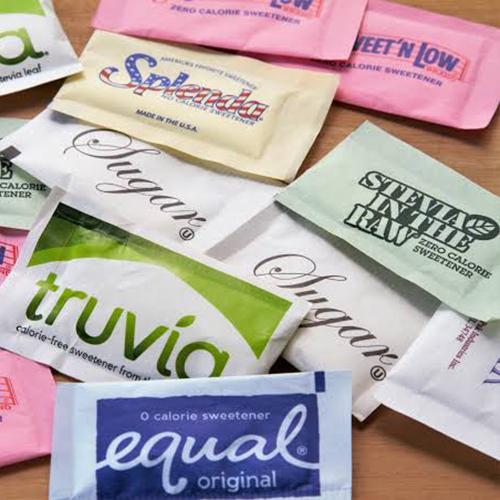- Home
- Editorial
- News
- Practice Guidelines
- Anesthesiology Guidelines
- Cancer Guidelines
- Cardiac Sciences Guidelines
- Critical Care Guidelines
- Dentistry Guidelines
- Dermatology Guidelines
- Diabetes and Endo Guidelines
- Diagnostics Guidelines
- ENT Guidelines
- Featured Practice Guidelines
- Gastroenterology Guidelines
- Geriatrics Guidelines
- Medicine Guidelines
- Nephrology Guidelines
- Neurosciences Guidelines
- Obs and Gynae Guidelines
- Ophthalmology Guidelines
- Orthopaedics Guidelines
- Paediatrics Guidelines
- Psychiatry Guidelines
- Pulmonology Guidelines
- Radiology Guidelines
- Surgery Guidelines
- Urology Guidelines
Low calorie sweeteners linked to diabetes in new study

The consumption of foods and beverages containing low calorie sweeteners has increased worldwide over the last three decades. Low calorie sweeteners are used in place of sucrose, glucose and fructose by diabetes patients and weight watchers.They have an intense sweet flavour without the calories.There has been a 200 per cent increase in LCS usage among children and a 54 per cent increase among adults in the past 20 years.
A recent study has highlighted potential adverse health effects.
Researchers from the University of South Australia have found that artificial sweeteners taken to lose weight may be contributing to type 2 diabetes.mmA recently published review reveals that people who use low-calorie sweeteners (LCS) are more likely to gain weight, the exact opposite of what consumers expect.T
study has been published in Current Atherosclerosis Reports.
This is despite controlled clinical trials showing that artificial sweeteners do lead to weight loss.
Prof Clifton says a US study of 5158 adults over a seven-year period found that those who consumed large quantities of artificial sweeteners gained more weight than non-users.
"Consumers of artificial sweeteners do not reduce their overall intake of sugar. They use both sugar and low-calorie sweeteners and may psychologically feel they can indulge in their favourite foods.
"Artificial sweeteners also change the gut bacteria which may lead to weight gain and risk of type 2 diabetes," he says.
Artificially sweetened beverages (ASB) are also linked with increased risks of death and cardiovascular disease, and strokes and dementia among older people, but it is not clear why.
Prof Clifton cites 13 studies which investigated the effects of ASB intake on the risk of type 2 diabetes, all of which found either no link or a positive one. One study found that substituting ASB for sugar-sweetened beverages or fruit juices was associated with a 5-7 per cent lower risk of type 2 diabetes.
"A better option than low-calorie sweeteners is to stick to a healthy diet, which includes plenty of whole grains, dairy, seafood, legumes, vegetables and fruits and plain water," Prof Clifton says.
For further reference log on to: https://link.springer.com/
Next Story
NO DATA FOUND

Disclaimer: This site is primarily intended for healthcare professionals. Any content/information on this website does not replace the advice of medical and/or health professionals and should not be construed as medical/diagnostic advice/endorsement or prescription. Use of this site is subject to our terms of use, privacy policy, advertisement policy. © 2020 Minerva Medical Treatment Pvt Ltd